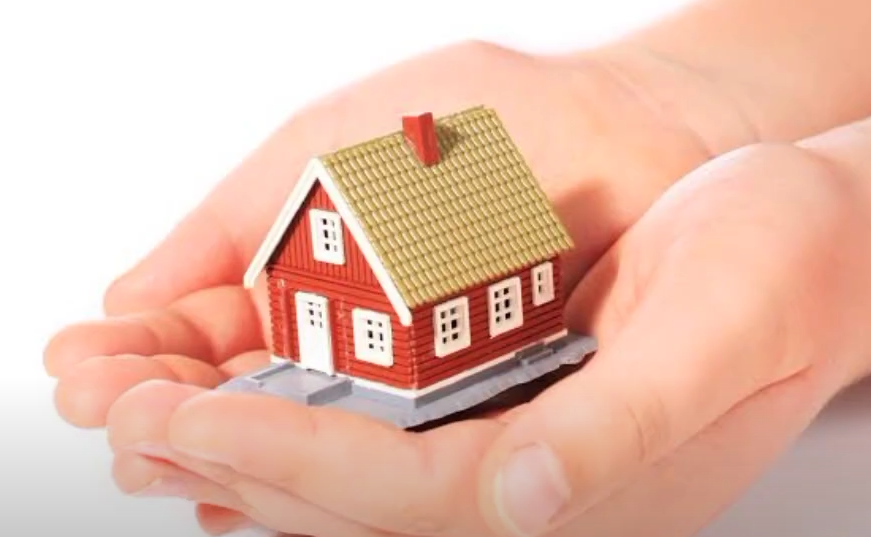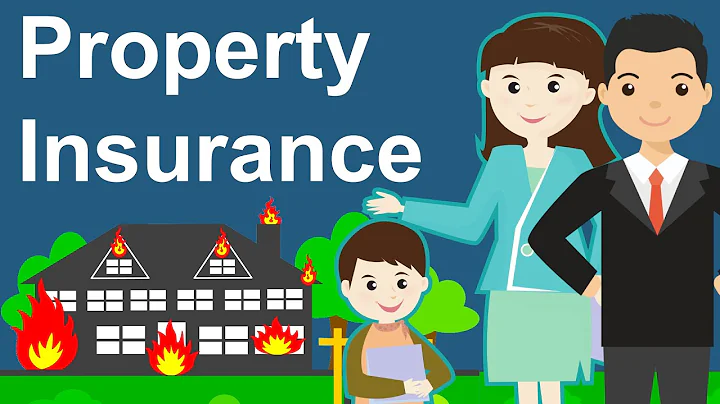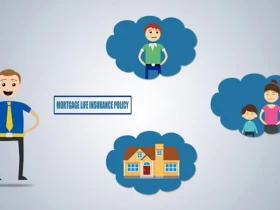Introduction to Property Insurance
What is Property Insurance?
Definition and Overview
Property insurance is coverage that protects property owners against risks associated with their property. These risks could include damages from natural disasters, theft, or fire. Property insurance is a broad term that includes several types of insurance policies designed to protect different residential and commercial property types.

Importance of Property Insurance
Property insurance is crucial for anyone who owns property, whether it’s a home, a business, or a piece of land. It provides financial protection against unforeseen events that could result in significant losses. Property insurance ensures that homeowners are covered in case of damage to their home or personal belongings. For businesses, property insurance helps safeguard against interruptions that could otherwise cripple operations.
History and Evolution of Property Insurance
Origins of Property Insurance
The concept of property insurance dates back to ancient civilizations. Early forms of property insurance were established to protect merchants from losses during trade. Over time, the idea evolved, and modern property insurance emerged during the Great Fire of London in 1666, which led to more formalized insurance practices.

Key Milestones in Property Insurance Development
Over the centuries, property insurance has undergone significant changes. The introduction of standardized policies, the expansion of coverage to include various risks, and the development of commercial property insurance are just a few milestones that have shaped the industry.
Modern Trends in Property Insurance
Today, property insurance has adapted to meet the changing needs of property owners. The industry is embracing technology to offer more personalized and efficient services. For instance, the rise of Insurtech is revolutionizing how property insurance is bought and managed, making it easier for consumers to get the coverage they need.
Types of Property Insurance
Residential Property Insurance
Homeowners Insurance
Homeowners insurance is designed to protect individuals who own their homes. This type of insurance covers the structure of the house, personal belongings, and liability for any accidents on the property. Homeowners insurance is essential for protecting against potential financial losses from damage like fires, storms, or theft.
Renters Insurance
Renters insurance covers personal belongings and liability for those who rent rather than own their homes. While landlord’s insurance typically covers the building itself, renters insurance ensures tenants’ possessions are protected against theft, fire, or water damage.
Condo Insurance
Condo insurance is tailored for condominium owners. It typically covers the interior of the unit and personal belongings and provides liability coverage. This type of insurance complements the master policy held by the condo association, which covers the building’s exterior and common areas.
Mobile Home Insurance
Mobile home insurance is designed specifically for mobile or manufactured homes. This type of insurance provides coverage similar to homeowners insurance, protecting the structure, personal property, and liability. Mobile home insurance is essential for safeguarding against risks unique to these properties.

Commercial Property Insurance
Small Business Property Insurance
Small business property insurance is vital for protecting small businesses’ assets. This type of insurance covers the company’s physical structure, inventory, equipment, and more. It also includes coverage for business interruption, which can help a company recover lost income if it cannot operate due to a covered event.
Large Commercial Property Insurance
For larger businesses, large commercial property insurance provides comprehensive coverage for extensive operations. This insurance protects against significant losses from damages to large properties, such as warehouses, factories, or office buildings.
Industrial Property Insurance
Industrial property insurance is a specialized form of commercial property insurance that covers properties used for manufacturing, production, and other industrial activities. Given the high risks associated with these operations, industrial property insurance is crucial for protecting against substantial financial losses.
Specialized Property Insurance
Flood Insurance
Flood insurance is a type of property insurance that provides coverage specifically for damages caused by flooding. Standard property insurance policies often exclude flood damage, making it essential for property owners in flood-prone areas to obtain separate flood insurance coverage.
Earthquake Insurance
Similar to flood insurance, earthquake insurance covers damages caused by earthquakes. Given the potential for significant earthquake destruction, especially in regions prone to seismic activity, this type of insurance is crucial for protecting property owners from catastrophic losses.
Fire Insurance
Fire insurance provides coverage for damages caused by fire. While fire coverage is typically included in standard property insurance policies, additional fire insurance may be necessary in areas with a high risk of wildfires or where standard coverage limits are insufficient.
Theft and Burglary Insurance
Theft and burglary insurance covers losses resulting from theft or burglary. This type of insurance is often included in residential and commercial property insurance policies, providing financial protection against losing valuable possessions.
Luxury Property Insurance
Luxury property insurance is designed for high-value properties and possessions. This type of insurance provides comprehensive coverage for luxury homes, expensive art collections, jewelry, and other valuable assets, ensuring property owners are fully protected against potential losses.
Critical Components of Property Insurance Policies
Coverage Types
Structure Coverage
Structure coverage, also known as dwelling coverage, protects the property’s physical structure. For homeowners, this includes the house itself, while for commercial property owners, it covers the building in which the business operates. Structure coverage is essential for rebuilding or repairing a property after a covered event has damaged it.
Personal Property Coverage
Personal property coverage protects a property’s belongings. For homeowners, this includes furniture, electronics, clothing, and other personal items. For businesses, personal property coverage can extend to inventory, equipment, and other assets essential to the business’s operation.
Liability Coverage
Liability coverage is a critical component of property insurance. It protects property owners from legal claims if someone is injured. This coverage helps pay for legal expenses and any settlements or judgments resulting from a lawsuit.
Additional Living Expenses Coverage
Additional living expenses (ALE) coverage is designed to cover the costs of living elsewhere if a property is uninhabitable due to a covered event. For example, if a home is damaged by a fire and the owner needs to stay in a hotel while repairs are made, ALE coverage would help cover those expenses.
Table of Contents
Policy Terms and Conditions
Deductibles
A deductible is the amount a policyholder must pay out of pocket before the insurance company pays for a covered loss. Understanding deductibles is crucial for property owners, as higher deductibles can lower premiums and mean higher out-of-pocket costs in the event of a claim.
Policy Limits
Policy limits refer to the maximum amount an insurance company will pay for a covered loss. Property owners must ensure that their policy limits are sufficient to cover the potential costs of rebuilding or repairing their property after a significant loss.
Exclusions and Inclusions
Exclusions are specific situations or types of damage that are not covered by an insurance policy. Inclusions are the events or damages that are covered. Understanding the exclusions and inclusions in a property insurance policy is essential for ensuring comprehensive protection.
Premiums and Payments
Factors Affecting Premiums
Several factors can affect the premiums property owners pay for their insurance. These include the location of the property, its age and condition, the level of coverage selected, and the policyholder’s claims history.
Payment Options and Plans
Insurance companies often offer various payment options and plans to help property owners manage their premiums. These can include monthly, quarterly, or annual payments and automatic deductions from a bank account.
Discounts and Savings Opportunities
Property owners can often take advantage of discounts and savings opportunities to reduce their insurance premiums. Typical discounts include bundling multiple policies, installing security systems, or maintaining a claims-free history.
Understanding the Claims Process
Filing a Property Insurance Claim
Steps to File a Claim
Filing a property insurance claim can seem daunting, but following a few simple steps can make the process smoother. Property owners should notify their insurance company immediately after a loss occurs. They must then provide detailed documentation of the damage and any costs incurred.

Required Documentation
Proper documentation is essential for a successful claim. This includes photos or videos of the damage, receipts for repairs or replacements, and other relevant information that can help substantiate the claim.
Working with Adjusters
An insurance adjuster will typically be assigned to assess the damage and determine the appropriate amount of compensation. Property owners should work closely with the adjuster to ensure that all damages are accounted for and that they receive a fair settlement.
Claim Settlement Process
How Claims Are Evaluated
Insurance companies evaluate claims based on the extent of the damage, the terms of the policy, and the documentation provided by the policyholder. Understanding how claims are evaluated can help property owners navigate the process more effectively.
Common Challenges in Claim Settlement
Several challenges can arise during the claim settlement process. These can include disputes over the extent of the damage, disagreements about the value of the loss, and delays in processing the claim. Awareness of these challenges can help property owners prepare and advocate for themselves.
Tips for a Successful Claim Settlement
Property owners should provide thorough documentation to ensure a successful claim settlement, communicate clearly with their insurance company, and consider seeking professional assistance if needed. These steps expedite the process and provide a fair outcome.
Legal and Regulatory Aspects
Property Insurance Laws and Regulations
Overview of Key Regulations
Property insurance is governed by a complex web of laws and regulations at both the state and federal levels. These regulations are designed to protect consumers, ensure the solvency of insurance companies, and maintain a fair marketplace.
State vs. Federal Regulations
While federal regulations set broad standards for the insurance industry, state regulations often have a more direct impact on property insurance policies. Understanding the differences between state and federal regulations can help property owners navigate their rights and responsibilities.
Consumer Rights and Protections
Consumers have specific rights and protections under property insurance laws. These include the right to receive clear information about their policy, the right to a fair claims process, and the right to appeal a denied claim. Knowing these rights can help property owners make informed decisions about their insurance coverage.
Legal Disputes in Property Insurance
Common Legal Issues
Legal disputes in property insurance can arise for various reasons, including disagreements over coverage, delays in claim processing, and allegations of bad faith by the insurance company. Understanding common legal issues can help property owners prepare for potential challenges.
Resolving Disputes
Disputes can often be resolved through negotiation or mediation. However, in some cases, legal action may be necessary. Property owners should consult a lawyer if they encounter significant issues with their insurance company.
The Role of Lawyers in Property Insurance Disputes
Lawyers are crucial in helping property owners navigate legal disputes with their insurance companies. They can provide valuable advice, represent clients in negotiations, and, if necessary, take the case to court to ensure a fair outcome.
The Role of Technology in Property Insurance
Digital Transformation in Property Insurance
The Rise of Insurtech
Insurtech refers to using technology to innovate and improve the insurance industry. Insurtech is making it easier for consumers to obtain quotes, purchase policies, and file claims for property insurance. This digital transformation is enhancing the customer experience and driving efficiency.
AI and Big Data in Property Insurance
Artificial intelligence (AI) and big data are increasingly crucial in property insurance. AI can help insurers assess risks more accurately, while big data allows for more personalized and predictive insurance products. These technologies are revolutionizing the way property insurance is delivered.
Blockchain and Smart Contracts
Blockchain technology and smart contracts are emerging as powerful tools in the property insurance industry. Blockchain can provide a secure and transparent way to manage insurance policies and claims, while smart contracts can automate many aspects of the insurance process, reducing the potential for disputes.
Innovations in Property Insurance
Usage-Based Insurance Models
Usage-based insurance models are becoming more popular in the property insurance industry. These models allow for more flexible and personalized coverage based on how a property is used. For example, a homeowner who only lives in their home part-time might pay a lower premium under a usage-based model.
Predictive Analytics in Risk Assessment
Predictive analytics is another innovation that is transforming property insurance. By analyzing historical data and identifying patterns, insurers can better predict risks and set premiums accordingly. This leads to more accurate pricing and better risk management for insurers and policyholders.
Mobile Apps and Customer Experience
Mobile apps enhance the customer experience in property insurance by providing easy access to policy information, claims processing, and customer support. These apps allow property owners to manage their insurance on the go, making it more convenient and user-friendly.
Risks and Challenges in Property Insurance
Emerging Risks in Property Insurance
Climate Change and Natural Disasters
Climate change is one of the most significant emerging risks in property insurance. As extreme weather events become more frequent and severe, property insurers face increased claims and higher costs, which has led to changes in how risks are assessed and priced.
Cybersecurity Threats to Property Insurance
Cybersecurity threats are also rising as the property insurance industry becomes more digital. Insurers must protect sensitive customer data from cyberattacks, and policyholders must be aware of the risks associated with managing their insurance online.
Economic Uncertainty and Its Impact
Economic uncertainty can also pose challenges for the property insurance industry. During economic downturns, consumers may be less willing to purchase insurance or seek to reduce their coverage, leading to decreased revenues for insurers.
Challenges for Insurers and Policyholders
Underinsurance Issues
Underinsurance is a significant challenge in the property insurance industry. Many property owners do not have enough coverage to fully protect their assets, which can lead to financial difficulties in the event of a significant loss. Property owners must review their coverage and ensure it meets their needs regularly.
Moral Hazard and Adverse Selection
Insurers face two challenges in providing property insurance: moral hazard and adverse selection. Moral hazard occurs when policyholders take on more significant risks because they know they are insured, while adverse selection happens when high-risk individuals are more likely to purchase insurance. Insurers must carefully manage these risks to remain profitable.
Fraud in Property Insurance
Fraud is another challenge affecting the property insurance industry. Fraudulent claims can lead to higher premiums for all policyholders and strain insurance companies’ resources. Insurers must have robust fraud detection and prevention measures to protect their businesses and customers.
Future Trends in Property Insurance
The Future of Property Insurance
Impact of Environmental Changes
Environmental changes will continue to impact the property insurance industry significantly. Insurers must adapt to the increasing risks of climate change, including developing new products and adjusting their pricing models to account for these changes.
The Growth of Sustainable Insurance Practices
Sustainable insurance practices are expected to grow in importance as the industry responds to environmental challenges. These could include offering discounts for energy-efficient homes or investing in renewable energy projects. By promoting responsible behavior and reducing risks, sustainable insurance practices benefit both the environment and policyholders.
Customer-Centric Approaches in the Future
Customer-centric approaches will become increasingly important as the property insurance industry becomes more competitive. Insurers will need to focus on providing personalized products, excellent customer service, and transparent communication to retain and attract customers.
Predictions and Forecasts
Market Growth Projections
The property insurance market is expected to continue growing, driven by increasing demand for coverage and the development of new insurance products. Insurers that can innovate and adapt to changing market conditions will be well-positioned for success in the future.
The Role of Emerging Markets
Emerging markets will play a significant role in the future of property insurance. As economies in developing countries grow, the demand for property insurance will likely increase. Insurers that can tap into these markets will have significant opportunities for growth.
Innovations Shaping the Future
Innovations in technology, risk assessment, and customer experience will continue to shape the future of property insurance. Insurers embracing these innovations can offer more tailored and efficient services, benefiting their businesses and customers.
Conclusion
Recap of Key Points
Summary of Property Insurance Essentials
Property insurance is vital for protecting property owners against the risks associated with owning property. It provides the financial protection needed to recover from unexpected events, whether the property is a home, a business, or a valuable asset.
The Importance of Staying Informed
Staying informed about property insurance is essential for making the right decisions about coverage. Property owners should regularly review their policies, stay updated on industry trends, and consult with insurance professionals to ensure they have the protection they need.
Final Thoughts
The Value of Comprehensive Coverage
Comprehensive coverage is critical to protecting your property and your financial well-being. Whether you’re a homeowner, a business owner, or both, having the right property insurance in place can make all the difference in the event of a loss.
Tips for Choosing the Right Property Insurance
When choosing property insurance, consider factors such as the type of property, the level of coverage needed, and the reputation of the insurance provider. By taking the time to research and compare options, you can find a policy that offers the best protection for your needs.







Leave a Reply